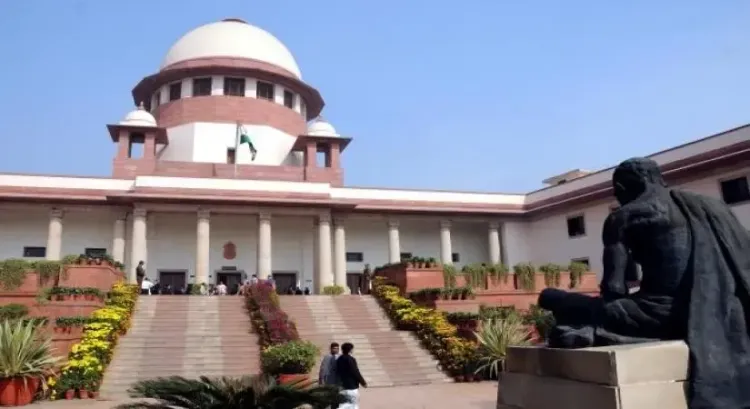Why Did the SC Criticize Maha and Goa Bar Council for 'Malicious Prosecution' of an Advocate?

Synopsis
Key Takeaways
- The Supreme Court upheld the Bombay High Court's decision to quash the complaint against advocate Shastri.
- Costs were imposed on BCMG and the complainant for causing distress.
- The ruling emphasizes protection for advocates against unfounded accusations.
- Legal professionals must be safeguarded from malicious prosecution.
- The court's ruling highlights the need for integrity in disciplinary proceedings.
New Delhi, Sep 24 (NationPress) The Supreme Court has expressed strong disapproval towards the Bar Council of Maharashtra and Goa (BCMG) for engaging in malicious prosecution against an advocate who simply identified the opposing party in an affidavit.
A bench comprising Justice Vikram Nath and Justice Sandeep Mehta not only dismissed the special leave petitions (SLPs) challenging the Bombay High Court's ruling to nullify disciplinary actions against advocate Geeta Ramanugrah Shastri, but also imposed a fine of Rs. 50,000 each on the BCMG and the complainant for inflicting immeasurable grief and harassment upon her.
This case emerged from a conflict involving Bansidhar Annaji Bhakad, a former lecturer at Ismail Yusuf Junior College, who had lodged a complaint against advocate Shastri for purportedly endorsing false claims in a chamber summons affidavit.
According to Bhakad, the assertions made in the affidavit were eventually proven false, implying that the advocate, by supporting the affidavit, had facilitated the falsehoods and made a misleading statement.
In its controversial ruling, the Bombay High Court had annulled the complaint, highlighting that the respondent-advocate had not personally sworn any affidavit, and that merely identifying the deponent did not implicate her in the affidavit's contents.
Upholding the Bombay High Court's decision to dismiss the “wholly absurd and untenable” complaint, the Justice Vikram Nath-led Bench remarked: “An advocate, by mere attestation of the affidavit, does not become privy to the contents of the affidavit. Thus, the complaint lodged by the petitioner, Bansidhar Annaji Bhakad, against the respondent-advocate lacked substance and was rooted in malicious and spiteful insinuations aimed at the advocate who simply identified the opposite party in an affidavit.”
The apex court criticized BCMG harshly, deeming the order that mandated the registration of the complaint and its referral to the Disciplinary Committee (DC) for investigation as illegal and bordering on perversity.
“This is blatantly a case of malicious prosecution of the advocate instigated by the opposing litigant,” the bench remarked, directing that the imposed costs be deposited with the Bombay High Court registry within four weeks, from where they will be disbursed to advocate Shastri.










